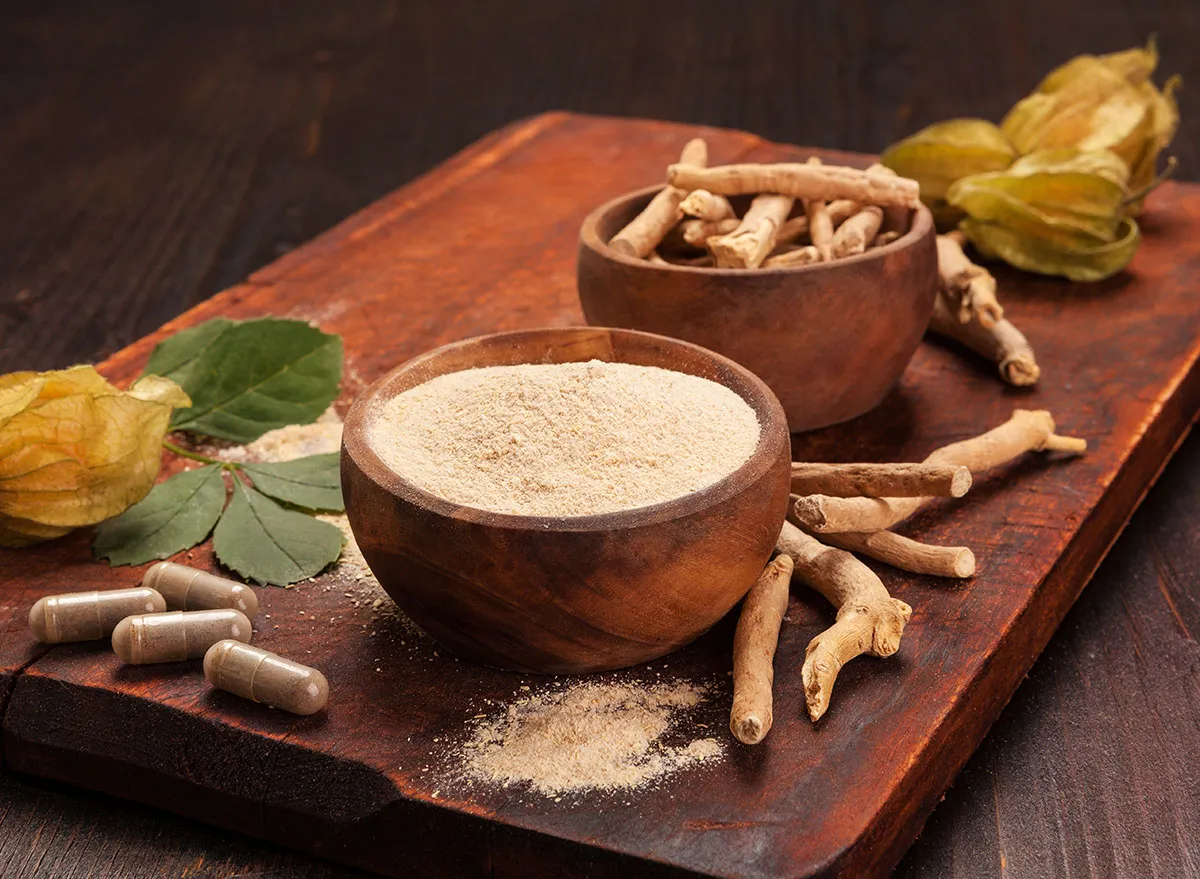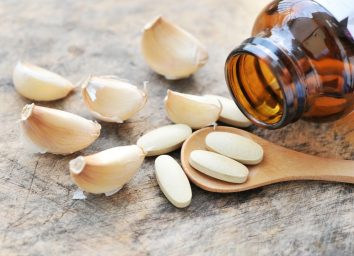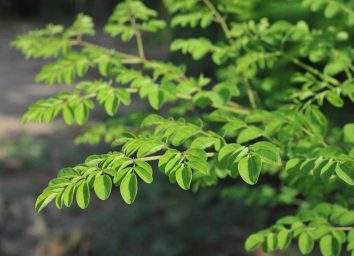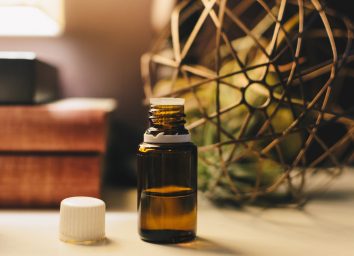Ashwagandha: Everything You Need to Know Before You Try It

If you are someone who struggles with anxiety and/or stress on a regular basis, then you've probably narrowed down a few tried-and-true coping mechanisms that get you through trying times. For some, it's going for a run to override stress with endorphins; for others, free writing in a journal to let the emotions flow out of the body and onto paper. But there might be something adaptogens can do for you in this area, too, especially one called ashwagandha, which is lauded for its ability to reduce both emotional and physical symptoms of stress.
According to Stacey Gillespie, brand director of Gaia Herbs, ashwagandha, or Indian Ginseng, belongs to the nightshades family. More specifically, Dr. Will Cole, leading functional medicine expert, IFMCP, DC, and author of The Inflammation Spectrum and Ketotarian, adds that the medicinal ashwagandha supplements are derived from the root and the berry of the ashwagandha plant, which is native to India.
Also found in Pakistan and Sri Lanka, ashwagandha has 4,000 years of traditional use to its name, and is recognized as a medicinal tonic (easayana) in Ayurvedic medicine, says Gillespie. In fact, medicine hunter Chris Kilham tells us the term comes from the ancient Indo-European language Sanskrit. Broken down, "ashva" means horse, and "gandha" means smell, alluding to the roots' strong odor, Kilham explains.
What are the health benefits of ashwagandha
Per the International Journal of Home Science, ashwagandha is made up of carbohydrates, proteins, very little fat, and a significant amount of crude fiber. It contains iron, calcium, and vitamin C, and, according to The Chopra Center, is loaded with medicinal chemicals including withanolides (natural steroids), alkaloids, choline, fatty acids, amino acids, plus a variety of sugars. Historically, the superherb has been used to treat a variety of health conditions, from high levels of anxiety to improper thyroid functioning.
Ashwagandha might reduce stress and anxiety levels
Whether it stems from overtime at the office, sleepless nights with a newborn, or just trying to juggle life as it comes, everyone experiences stress (some more than others). But let's say running on a treadmill or taking up kickboxing isn't exactly getting out your frustrations, ashwagandha can act as an alternate form of relief.
Research has found that implementing the herbal supplement into your diet can reduce anxiety and stress. For example, a 2012 placebo-controlled study published in the Indian Journal of Psychological Medicine found that cortisol levels of participants that were taking 600 mg of ashwagandha extract daily for 60 days were significantly lower than those who had been assigned a placebo.
Ashwagandha might strengthen your immune system
A 2014 review published in the Journal of Biological Sciences cites a handful of studies that point to ashwagandha as a natural immunity booster. This is in large part due to the withanolides (naturally occurring steroids) found in the root that, per the review, contains antioxidant, diuretic, cardiorespiratory enhancement, and anti-inflammatory properties, among others. Additionally, ashwagandha also contains glycoprotein, protein responsible for antimicrobial activity (aka kills microorganisms before they have the chance to grow/spread in the body).
Ashwagandha might boost your libido
During a 2015 clinical study published in the journal BioMed Research International, ashwagandha root extract was successful in improving sexual function in women. The female participants were assigned to either take a placebo or a high-concentration ashwagandha root extract (HCARE) supplement for eight weeks. Results showed that ashwagandha did improve female sexual dysfunction, in part due to its anti-stress effect.
Ashwagandha might aid male fertility
Men who are experiencing fertility issues might benefit from introducing ashwagandha into their diet. According to research published in the journal Evidence-Based Complementary and Alternative Medicine, men who took 675 mg of ashwagandha in three doses over the course of 90 days saw a 167% increase in sperm count, a 53% increase in semen value, and a 57% increase in sperm mobility.
Ashwagandha might enhance your athletic endurance
In a 2015 study, researchers evaluated the oxygen consumption levels of 50 healthy female and male athletes at their peak physical exertion. The athletes had either been assigned a placebo, or an ashwagandha supplement to assess how (if at all) the latter might affect their performance. At eight and 12 weeks of the experiment, it was found that those who had taken ashwagandha not only experienced an enhanced cardiorespiratory endurance, their quality of life also improved.
Gym rats will also be happy to know that ashwagandha has been found to be beneficial to weight lifters, too. According to a study published in the Journal of the International Society of Sports Nutrition, subjects who were given an ashwagandha supplement saw a significant increase in muscle strength in areas of bench-press and leg-extension exercises, an increase in arm and chest muscle size, as well as reduced muscle damage and body fat percentages.
Ashwagandha is said to support healthy thyroid function
Ashwagandha has been shown to boost an underactive thyroid which is a relief when you consider that low thyroid hormone levels are becoming an epidemic, especially in women, says Dr. Cole. Though more research is needed on the subject, one study published in the Journal of Alternative and Complementary Medicine found that patients with a thyroid disorder had much healthier TSH and T4 levels, and therefore more normal thyroid function after eight weeks of supplementing with ashwagandha.
Are there side effects to taking ashwagandha?
Large doses of ashwagandha can lead to digestive upset like diarrhea, stomach pain, and vomiting. In other words, you're going to want to pay very close attention to how much of the supplement you're putting into your body.
Another thing to keep in mind is that, because ashwagandha is considered part of the nightshade family, it might not suit those with autoimmune disease, especially autoimmune joint pain, says Dr. Cole. "While many people with autoimmunity do not react negatively to nightshade plants (like tomatoes, eggplant, peppers, and potatoes), those who do should avoid ashwagandha as well," Cole warns.
That being said, currently there aren't enough studies related to side effects of using ashwagandha, so it's best to talk to your doctor to see if the adaptogen is right for you.
Adding ashwagandha to your diet
Ashwagandha can be found most commonly in powdered form, though it does come in capsules and tinctures too. Gillespie suggests that anyone new to ashwagandha use might want to start with an herbal tea that has other ingredients besides ashwagandha because "the taste and smell may be overwhelming if this herb is not blended with other herbs."
As for non–tea drinkers, Dr. Cole suggests REBBL elixirs and protein drinks (such as the REBBL Hazelnut Chocolate Protein) as the brand uses "efficacious doses of ashwagandha in each bottle," and list how much they use right on the label.
What to look for in ashwagandha supplements
Anyone looking to experiment with ashwagandha is in luck because the adaptogenic herb can be found in many forms based on the lifestyle of those taking it. However, Kilham would like to point out that what form ashwagandha comes in is less of a concern as what part of the plant is being used for the supplement—many producers use the plant's leaves for their supplements instead of just the root. However, the plethora of studies published on the superherb (aka the ones boasting about all its benefits) focus on root-only extracts.
"While there are numerous human clinical studies using the root extract, pretty much the only clinical evidence for a root+leaf extract is from research sponsored by such extracts' manufacturers themselves," Kilham explains. "Make sure to choose a product that uses a high concentration, full-spectrum root extract (look for KSM-66 as an ingredient)."
Another detail to take keep in mind, says Gillespie, is the product's label—more specifically, how much extract is in a serving. "Typically capsules contain a higher concentration, so people may feel the full benefits of the herb more quickly with a capsule format," she says.
Bottom line: Should you try ashwagandha?
As is the case with virtually anything in life, what works for your friend's, mom's, or favorite influencer's body isn't necessarily going to bode well with your own anatomy. So it's crucial that you speak to your doctor and do your own research on the supplement before adding it to your daily routine. While the superherb has an array of studies to back up its benefits, depending on your unique makeup and the dosage you take, this known stress-buster can also induce unpleasant side effects.








